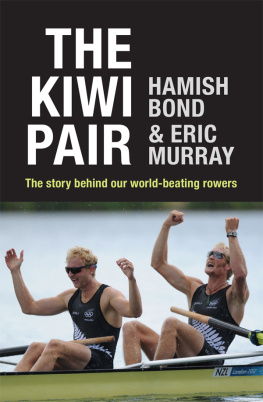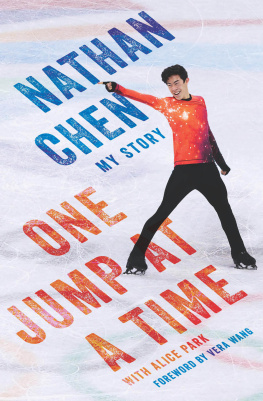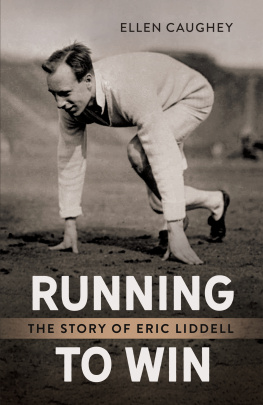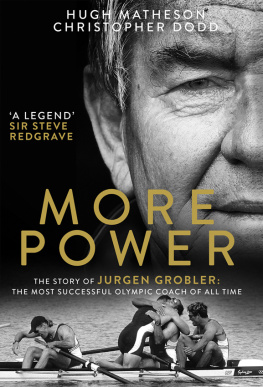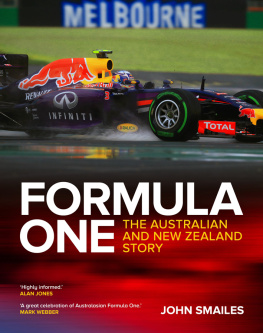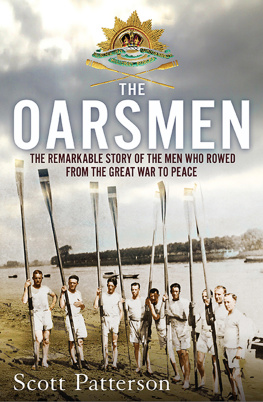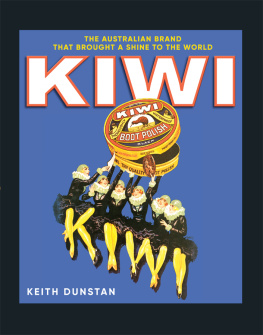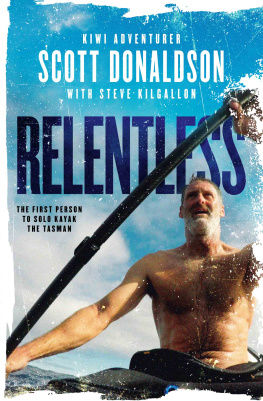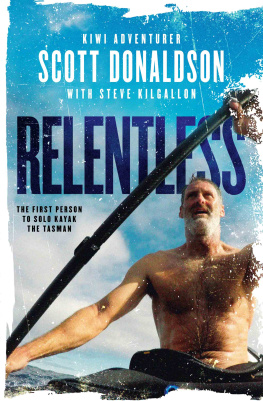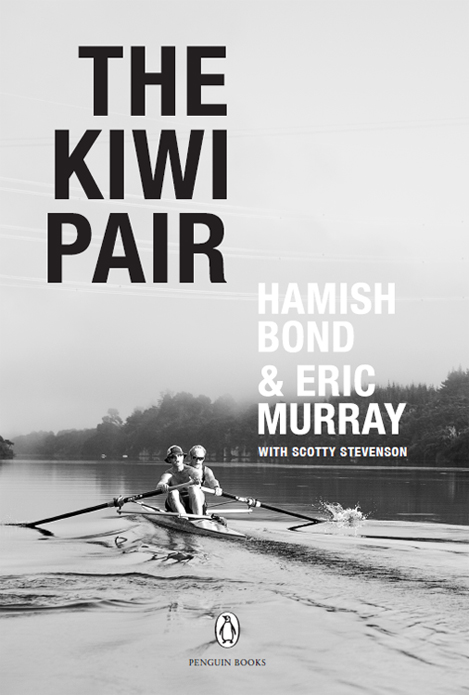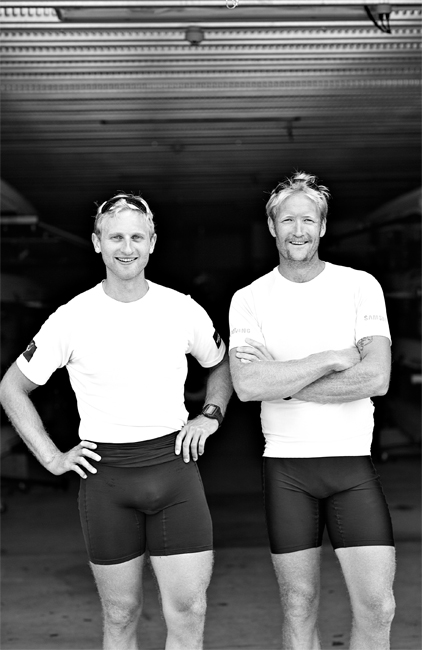Hamish Bond and Eric Murrays domination of world rowing is legendary. Olympic champions, world-record holders and the winners of six consecutive World Championship titles, they have been at the pinnacle of their sport since capturing their first title in the coxless pair in 2009.
Foreword
By Sir Steve Redgrave CBE DL
Five-time Olympic gold medallist
IT WOULD BE EASY to think that for a rowing crew to reach the very highest level, and indeed to push on to a level none have reached before, it must naturally comprise athletes who have a common way of thinking and an impeccable synchronicity of personalities. When you read the story of Hamish Bond and Eric Murray, you will realise that is simply not the case.
I have long understood that in pairs rowing there is a strength in having two distinct personalities, and two ways of thinking how best to go about achieving what amounts to a common goal: to go faster than anyone else, and to win. These differences help you push the boundaries, for it must always be the crew that does the pushing. To reach the very top there is no booklet to read, or pamphlet to peruse. There is no coach who can take you all the way, either, though the team around you is vitally important.
When everything else is scraped away, what you are left with is the desire from within. That desire is what allows you to get the best out of your ability, to keep going when it is unbelievably hard to keep going, and to continue to trust in the methods and the effort that have led to results. The differences between the rowers can provide some valuable freshness to cut through the monotony.
Hamish and Eric are very different men. They have different stories to tell, different ways of looking at the wider world around them, but they are linked by a fearsome determination to be the very best. They have turned that determination into a reality and they have become the very best. Their story charts that success, but it also charts the convergence of their talents, and the power of commitment.
Commitment is a rowers credo. Rowing is a sport that leaves no room for half measures, and has no place for any athlete who is not prepared to give everything they can. That commitment comes with sacrifice, but the trick is not to think of it as that. A champion rower does not acknowledge sacrifice; he or she only ever sees opportunity. Hamish and Eric have taken their opportunity and as a result they have taken pairs rowing to new levels. They didnt achieve this by doing less. They achieved it by doing more.
It would be convenient to think that this pairing is a product of serendipity, but I know that rowers rarely, if ever, stumble upon their outcomes. What becomes clear in this story is that while these two men both approached the sport in very different ways, their partnership was a result of a calculated search for every single advantage. There are no assurances that a crew will gel. There is no doubt this crew does.
Hamish and Eric, through their work ethic, their unbelievably high standards and their staggering list of achievements, have come to represent the pinnacle of what the sport of rowing has to offer. I rowed at a time when Eastern Bloc nations set the benchmark. The challenge for us was to upset that establishment, and there was an enormous amount of enthusiasm for that quest. Eventually, we became the establishment, and the challenge morphed into remaining ahead of the chasing pack.
When you read this story, it is clear that both of these men were quite separately fuelled by a desire to prove themselves to the establishment. Once that was achieved, they were able to parlay that desire into a mission to leave the world in their wake. I can relate to both men in terms of their development as rowers. Like me, neither of them hails from a privileged background, neither from a famous rowing school. Like me, each recognised he had a talent for this sport, and committed to taking that talent as far as humanly possible.
Perhaps it is helpful to add some perspective to their achievements in the boat. When I first rowed the pair internationally, the worlds best time hovered around six and a half minutes. When I finished in the pair, we had lowered that to 6:18. My countrymen, Matthew Pinsent and James Cracknell, shaved another four seconds off that. In 2012, at the London Olympic Games, Hamish and Eric reduced that time to 6:08. I shake my head to think that is faster than my first Olympic gold-medal winning time at Los Angeles in 1984, and I was rowing in a coxed four!
There are moments in time when, if you are good enough, you can gain legendary status. The Kiwi Pair gained that status in London, and they have enhanced it with everything they have achieved since.
They are great people to have in the sport, as are so many of their New Zealand contemporaries. They have a great attitude and are good men to be around. In my role as a broadcaster for the BBC, I have admired their willingness to give interviews, and to promote rowing. After all, if the best in the world arent prepared to do that, then where does that leave the sport? Certainly it is easier to be gracious when you are winning, but it is also easier to become arrogant. They could not be accused of that, and I hope they continue to conduct themselves in the way they do now.

